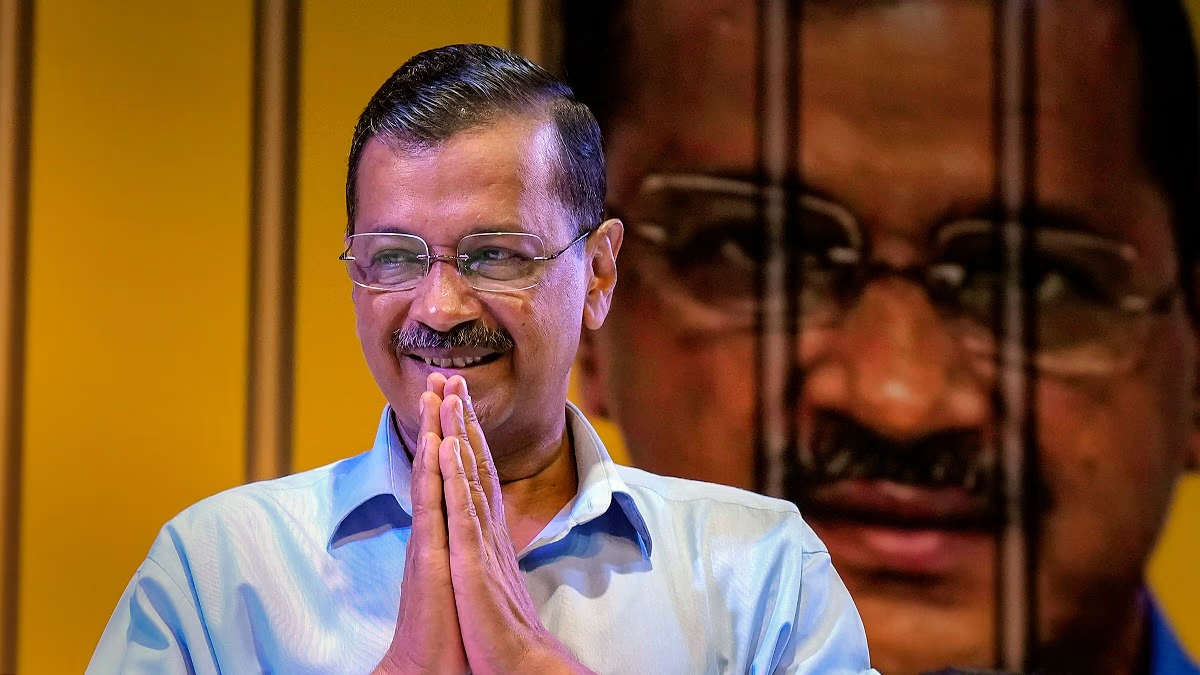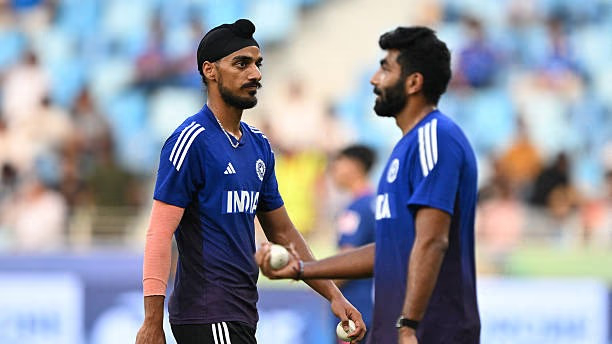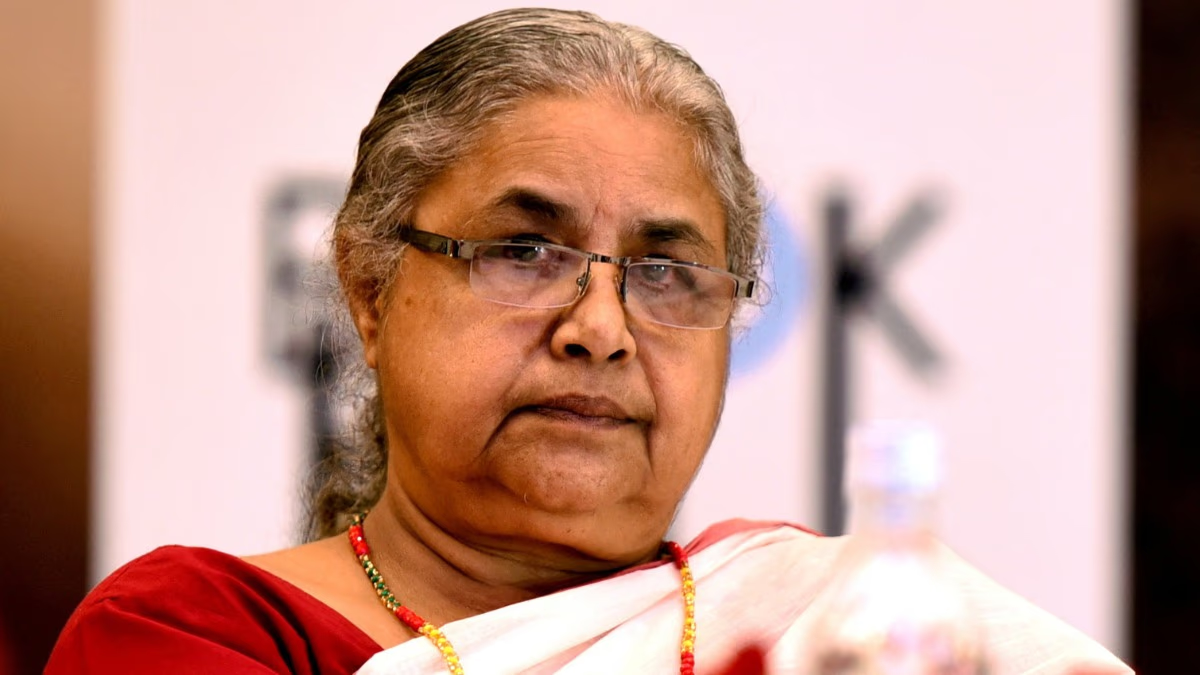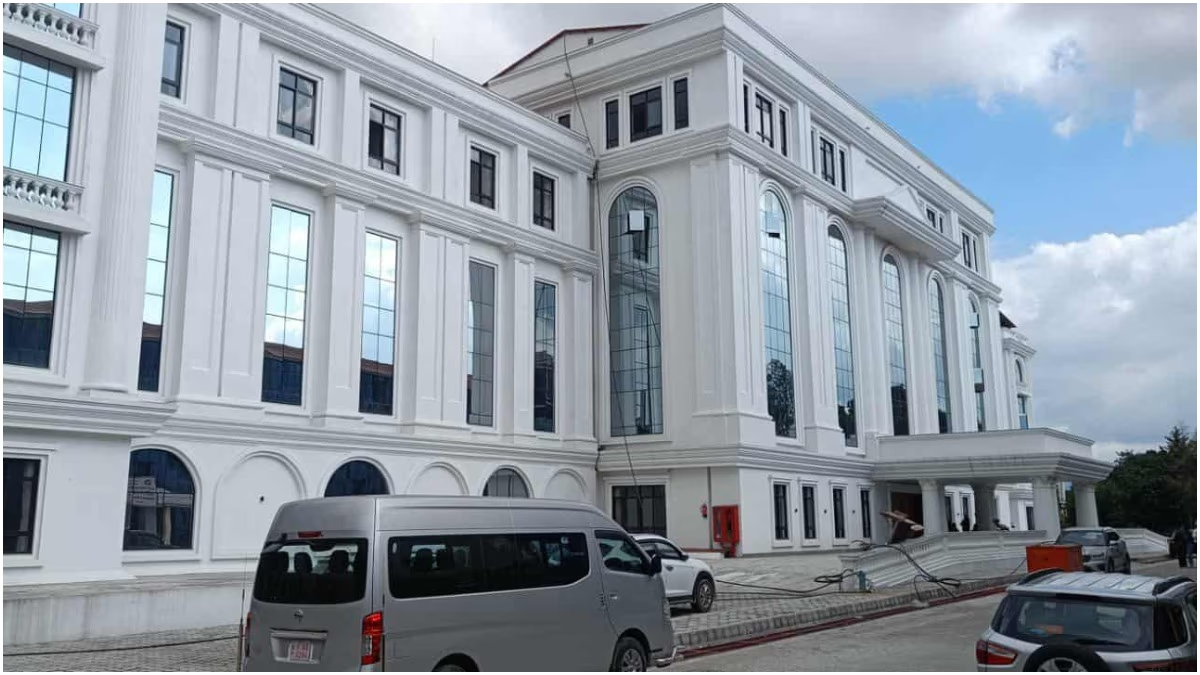The Supreme Court is set to deliver its decision on Friday regarding Chief Minister Arvind Kejriwal's bail in the Delhi Liquor Scam case. Kejriwal's petition challenges the CBI's arrest of him. Justices Surya Kant and Ujjal Bhuyan reserved the judgment on September 5 after hearing the case. If Kejriwal gets bail today, he will be released from Tihar Jail as he already has interim bail from the Supreme Court in the money laundering case.
Kejriwal was arrested by the CBI on June 26 while he was already in Tihar Jail for a money laundering case. Initially, the Enforcement Directorate had arrested him on March 21 from his official residence. Ten days of questioning later, on April 1, he was sent to Tihar Jail. After approximately 51 days, on May 10, the Supreme Court granted him release for 21 days for campaigning in the general elections. The Supreme Court permitted his release until June 1. Kejriwal surrendered back to Tihar Jail on June 2. If he is released on Friday, September 13, his total jail time would be 177 days. Excluding the 21 days of release, Kejriwal's official record would be 156 days in jail.
High Court Dismisses the Petition Challenging the Arrest
Kejriwal challenged the Delhi High Court's order in the Supreme Court. The High Court dismissed his petition challenging the CBI's arrest and advised him to approach the lower court for bail. Kejriwal challenged both orders in the Supreme Court, labeling the CBI's arrest as illegal and seeking bail.
What Arguments Did Kejriwal Present in the Supreme Court?
Senior Advocate Abhishek Manu Singhvi represented Kejriwal in the Supreme Court. He questioned the arrest and argued that arresting him without a notice under Section 41A of the CrPC was illegal, and Kejriwal should be released. Singhvi argued that the Supreme Court has consistently ruled that bail is the rule, and jail is the exception. Since Kejriwal holds a constitutional office, there is no risk of him absconding once granted bail. He referred to Kejriwal's arrest as an 'insurance arrest,' made just before his release in the ED case on June 26. Singhvi noted that the case dates back to August 2022, and no arrest was made for two years.
What Arguments Did the CBI Present?
The CBI justified the arrest, stating that Kejriwal was not cooperating with the investigation and continuously misleading the agency. The arrest was sanctioned by the court. A charge sheet has already been filed against Kejriwal, which is not attached to the petition. The CBI has the right to investigate and arrest.
Additional Solicitor General S.V. Raju represented the CBI, opposing the bail. He argued that Kejriwal should have approached the sessions court first instead of directly going to the High Court, which is not appropriate. The CBI maintained that without a charge sheet, Kejriwal cannot request regular bail.
ED Appeals Against Trial Court's Bail Decision
Meanwhile, the ED has filed a petition in the Delhi High Court against the trial court's decision to grant regular bail in the money laundering case related to the liquor scam. The High Court has adjourned the hearing to October 23. The court noted that the Supreme Court's constitutional bench is hearing the matter related to Kejriwal. The Supreme Court granted interim bail to Kejriwal in the money laundering case in July, referring the matter to the constitutional bench.
On June 20, the trial court (special CBI court) granted Kejriwal bail with a personal bond of Rs 1 lakh, but he could not be released from Tihar Jail due to being in judicial custody in the CBI case. The investigative agencies have accused Kejriwal of being the kingpin of the entire alleged scam. AAP is also named an accused in the case. Investigative agencies claimed that Kejriwal received a bribe from the 'South Group.' The CBI also accused Kejriwal of raising Rs 90 lakh as 'bribe' for 40 AAP candidates in the Goa Assembly elections of 2022.
Full Timeline of the Investigation
In November 2021, the Delhi government, led by the Aam Aadmi Party, introduced the new liquor policy. Before this policy, there were 864 liquor shops in Delhi, of which 475 were government-owned. Under the new policy, the government completely exited the liquor business, handing it over to private entities. Before the policy change, liquor traders earned a retail margin of Rs 33.35 on a 750 ml bottle. Post-policy, this margin shot up to Rs 363.27. Consequently, the price of a bottle that was Rs 530 rose to Rs 560. This led to massive profits for traders, while government revenue from excise duty on liquor sales plummeted rapidly.
- Earlier, the Delhi government collected Rs 223.89 excise duty on a Rs 530 bottle. But under the new policy, the government reduced the excise duty to only 1% of the wholesale price. Thus, on a Rs 530 bottle, traders paid Rs 1.88 as excise duty, while customers paid Rs 30 for the same bottle.
- On July 8, 2022, Delhi's then-chief secretary Naresh Kumar submitted a report to Lieutenant Governor V.K. Saxena. It accused then-excise minister Manish Sisodia of preparing the liquor policy fraudulently. The report estimated a loss of Rs 580 crore to the government exchequer due to the 2021-22 excise policy.
- Following this report, LG recommended a CBI inquiry. On August 17, 2022, the CBI registered the case, naming Manish Sisodia, three former government officials, nine businessmen, and two companies as accused. Due to the allegations of money laundering, the ED also joined the investigation. After filing the case, CBI and ED conducted raids and made arrests. Both agencies alleged that the 2021-22 excise policy caused the Delhi government a loss of Rs 2,873 crore.
Key Figures in the Alleged Scam
- Manish Sisodia (Former excise minister of Delhi) - A.G. Krishna (Former excise commissioner) - Anand Tiwari (Former deputy excise commissioner) - Pankaj Bhatanagar (Former assistant excise commissioner) - Vijay Nair (Former CEO of Only Much Louder) - Manoj Rai (Former employee of Pernod Ricard) - Amandeep Dhall (Director of Brindco Sales) - Sameer Mahendru (MD of Indospirits group) - Amit Arora (Director of Buddy Retail) - Dinesh Arora, Sunny Marwah (Authorized signatory of Mahadev Liquors) - Arun Ramachandra Pillai - Arjun Pandey - Buddy Retail Pvt Ltd - Mahadev Liquors
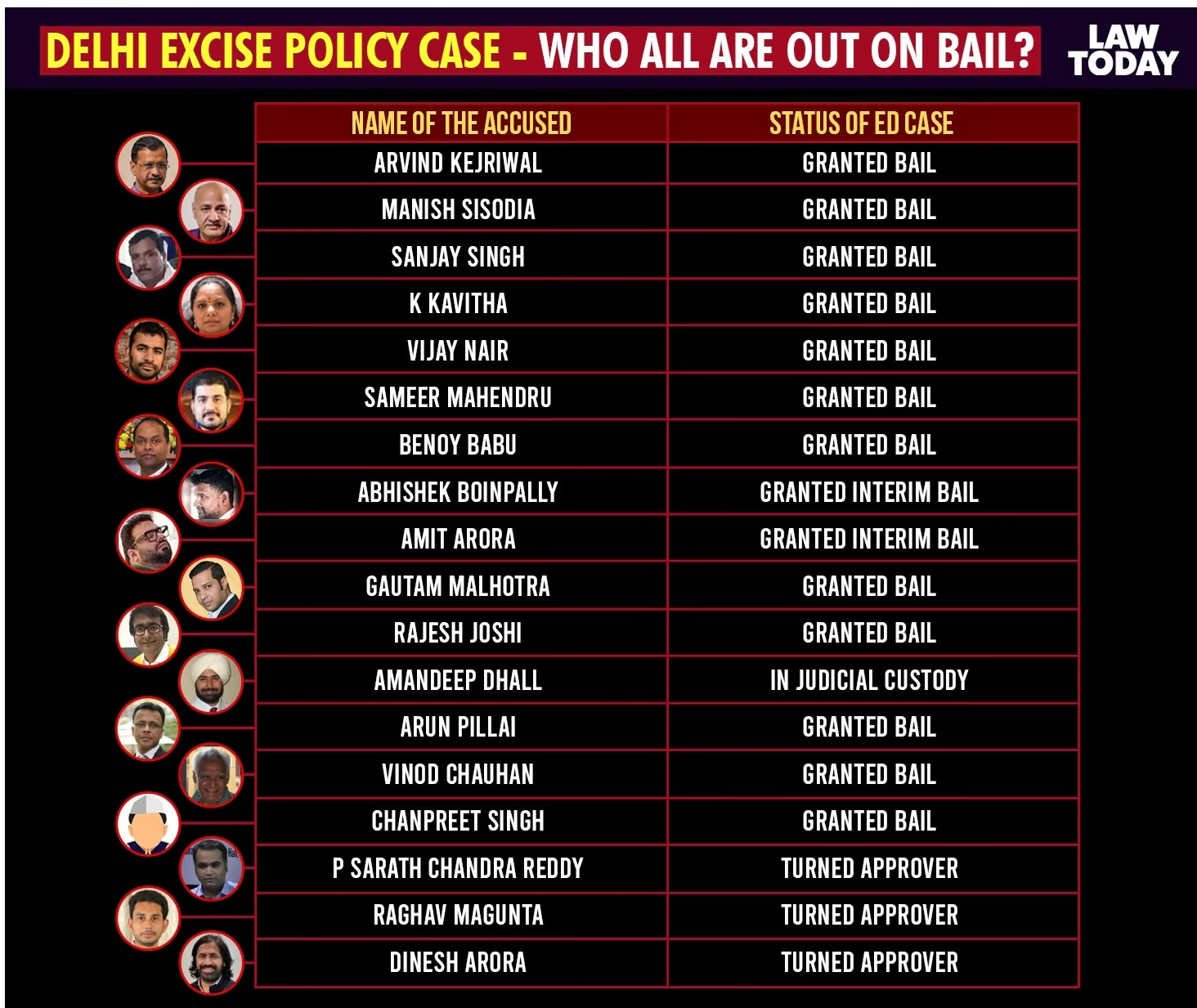
Source: aajtak
Who Was Arrested and When?
- On September 27, 2022, CBI arrested Vijay Nair. The next day, ED arrested Sameer Mahendru. - On February 26, 2023, CBI arrested Manish Sisodia. Following CBI, ED also arrested Manish Sisodia. - On October 4, 2023, ED arrested AAP Rajya Sabha MP Sanjay Singh. - On March 15, 2024, former Telangana CM KCR's daughter K. Kavitha was arrested.- On March 21, 2024, ED also arrested Chief Minister Arvind Kejriwal.- In March 2023, Hyderabad businessman Arun Ramachandra Pillai was arrested by ED for allegedly being part of the South Group, which sent Rs 100 crore in bribes to AAP leaders.- ED arrested hawala operator Vinod Chauhan for his involvement in transferring Rs 25.5 crore.- In April 2023, Delhi businessman Amandeep Dhall was arrested by CBI. Dhall is accused of conspiring with Vijay Nair and arranging meetings with the South Group.- In August 2023, an ED assistant director and six other officials were arrested for accepting a Rs 5 crore bribe to protect Amandeep Dhall.
ED's Arrest Record: 18 Accused, 11 Bailed
The ED has arrested 18 accused so far. Courts have granted bail to 14 accused, with 11 receiving regular bail and 3 on interim bail. Arvind Kejriwal, Hyderabad businessman Abhishek Boinpalli, and a liquor company director Amit Arora were granted interim bail. Delhi businessman Amandeep Dhall remains in judicial custody, and his bail plea is pending in the Delhi High Court.
CBI's Arrest Record: 9 Accused, 7 Bailed
CBI has arrested 9 accused, with two still in jail. Kejriwal and Amandeep Dhall remain in judicial custody. Former Delhi Deputy Chief Minister Manish Sisodia and BRS leader K. Kavitha were recently granted bail by the Supreme Court. AAP's former communication in-charge Vijay Nair, Hyderabad businessman Abhishek Boinpalli, Hyderabad CA Buchi Babu Gorantla, news channel head Arvind Kumar Singh, and AAP volunteer Chanpreet Singh were also arrested by CBI and later granted bail.
Who is Still Behind Bars?
- Amandeep Dhall remains in Delhi's jail. In June this year, the Delhi High Court denied him bail.
Who Has Been Released?
- On August 27, K. Kavitha was granted bail by the Supreme Court and released after 5 months in jail.- On August 9, 2024, Manish Sisodia was granted bail by the Supreme Court and released after 17 months in jail.- On April 2, 2024, AAP leader Sanjay Singh was granted bail by the Supreme Court, having spent 6 months in jail.- On September 2, AAP's former communication in-charge Vijay Nair was granted bail by the Supreme Court.- Rouse Avenue Court granted interim bail to Sameer Mahendru in January 2024.- Several other accused, including Pernod Ricard India's regional manager Binoy Babu, Chariot Productions Media's director Rajesh Joshi, Punjab liquor baron Gautam Malhotra, Hyderabad businessman Arun Pillai, AAP volunteer Chanpreet Singh, and businessman Vinod Chauhan, were also released on bail.- Abhishek Boinpalli, Buchi Babu Gorantla, Arvind Kumar Singh, and Rajesh Joshi of Chariot Productions Media have also been released on bail. - Three accused were later released by becoming government witnesses: Aurobindo Pharma's director P. Sarath Chandra Reddy, Raghav Magunta, son of Magunta Srinivasulu Reddy, and businessman Dinesh Arora.
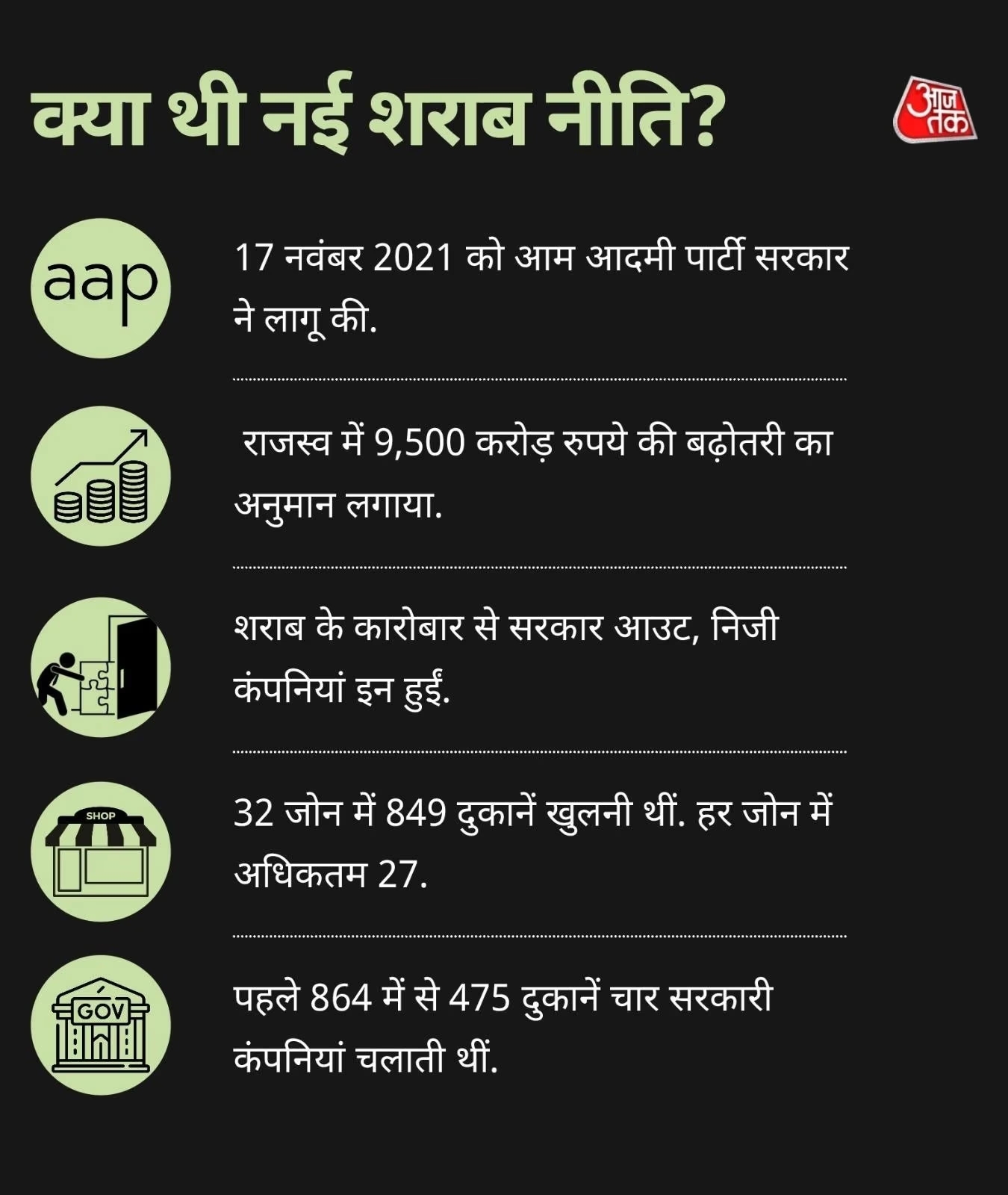
Source: aajtak
What Did ED Say in the Charge Sheet About the Liquor Scam?
- The ED filed a charge sheet in the liquor scam case in Rouse Avenue Court in July. AAP was named an accused. In the 209-page charge sheet, Arvind Kejriwal was listed as Accused No. 37. The ED cited direct messages exchanged between Kejriwal and Vinod Chauhan, who handled proceeds of crime, as evidence. The charge sheet detailed banknotes, serial numbers, and WhatsApp chats.
- Regarding Kejriwal's role, the ED stated that under Section 70 of the PMLA, Arvind Kejriwal played a role in the excise matter. As a key figure in AAP, Kejriwal is responsible for all actions by the party. AAP is the main beneficiary of proceeds of crime.
- The ED said, 'Out of the Rs 100 crore in bribes from the South Group, AAP used Rs 45 crore for the Goa elections. Under Section 70 of the PMLA, a company involved in such a crime can also be held liable. Thus, AAP was made an accused in the charge sheet.'
- 'Arvind Kejriwal was fully aware of the proceeds of crime and was involved. This money was used in the Goa elections, and as the national convener of the party, the responsibility lies with Arvind Kejriwal.' According to the charge sheet, 'Vijay Nair, who played a significant role in the liquor policy, was close to Kejriwal and acted under his instructions. Sameer Mahendru disclosed during questioning that Vijay Nair told him that Arvind Kejriwal was the mastermind behind the excise policy.'
What Was Kejriwal's Alleged Role in the Scam?
The ED's charge sheet frequently mentions Delhi CM Arvind Kejriwal's name. It alleges that when the excise policy was being formulated, several accused were in touch with Kejriwal. The testimonies of Buchi Babu Gorantla and Dinesh Arora implicated Kejriwal. The ED claimed that YSR Congress MP Magunta Srinivasulu Reddy and Kejriwal held several meetings. CM Kejriwal reportedly welcomed Reddy's entry into Delhi's liquor business. During questioning, Buchi Babu and accused Arun Pillai revealed that they were working with Kejriwal and Sisodia on the excise policy. Vijay Nair allegedly connected Kejriwal with accused Sameer Mahendru via a video call, where Kejriwal assured Sameer that Vijay was reliable.
What Was Kavitha's Alleged Role in the Scam?
- The ED claimed K. Kavitha was linked to the 'South Group' lobby of liquor traders, which played a significant role in drafting Delhi's 2021-22 excise policy. Allegedly, the South Group paid Vijay Nair at least Rs 100 crore as a bribe to be transferred to AAP leaders. The ED previously arrested Arun Ramachandran Pillai, who disclosed during interrogation that an agreement between Kavitha and AAP facilitated a Rs 100 crore transaction, granting Kavitha's company 'Indospirits' entry into Delhi's liquor business. In February last year, CBI arrested accountant Buchi Babu Gorantla. The ED also interrogated him and recorded his statement. During questioning, Buchi Babu revealed a political understanding among K. Kavitha, CM Arvind Kejriwal, and former Deputy CM Manish Sisodia.
